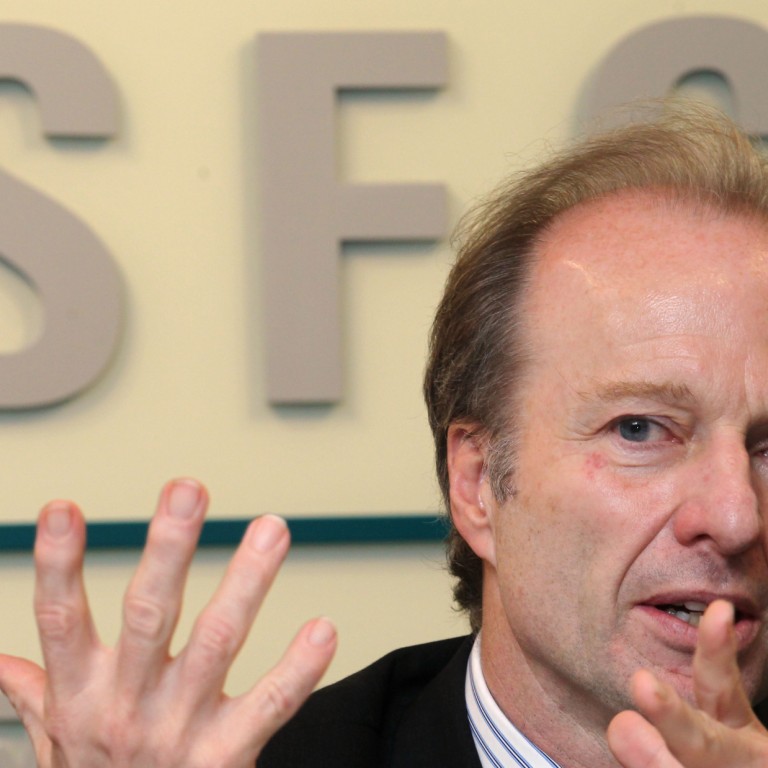
SFC tries to enhance professional investors' protection
David Smyth and Warren Ganesh of Smyth & Co, in association with RPC, consider the Securities and Futures Commission's recent consultation
In May, the Securities and Futures Commission launched a consultation on proposals to enhance protection given to individual professional investors and their investment companies or trusts.
If adopted, the proposals would amend the code of conduct for intermediaries that come under the SFC’s supervision – licensed corporations and registered institutions that conduct securities business. The proposals come on the back of the SFC’s own review in October of the selling practices of licensed corporations.
Banks have been relying on a contract’s terms and conditions to absolve them of liability
The proposals should also be viewed in the context of the greater protection afforded to “retail” investors. For example, witness the recently announced proposed multimillion-dollar settlement between RBS and several hundred retail investors in connection with alleged misselling claims relating to Lehman equity-linked notes. Professional investors are excluded from that settlement. Other banks have been “persuaded” by the SFC and the Hong Kong Monetary Authority to settle similar claims.
But professional investors who have commenced court proceedings against banks for alleged mis-selling practices have not fared well in Hong Kong. In particular, Banks and intermediaries have been astute in relying on contractual terms and conditions, “disclaimers” and the like, to absolve them of liability.
Who is a professional investor?
In lay jargon, a professional investor is a “high-net-worth individual”. For the purposes of the SFC’s Professional Investor Rules, a professional investor includes (among others) an individual with a portfolio of not less than HK$8 million (or the foreign-currency equivalent) or his or her investment vehicle with a portfolio of not less than HK$8 million or total assets of not less than HK$40 million. What proposals and why? At the heart of the SFC’s proposals is a bid to stop banks and intermediaries who make investment recommendations hiding behind contractual disclaimers (the small print).
There has been concern that certain banks and intermediaries purport to act on an “execution only” basis (i.e. simply carrying out client instructions) when, in fact, they are making recommendations to investors.
Indeed, in its consultation paper, the SFC refers to an example of a bank purporting to act on an “execution only” basis despite the fact that “the intermediary had made recommendations and had given views about investments”.
The case in question went to trial in Hong Kong last year. The court found that the bank was entitled to rely on its contractual terms and did not owe a duty to the investor to advise or to warn of risks (among other things).
The courts have also been reluctant to find that the code of conduct overrides the express contractual terms between a customer and a bank; hence the banks’ reliance on disclaimers. In short, sanctity of the contract appears to reign for now between banks and high-networth investors.
With that in mind, the SFC’s consultation makes a number of proposals.
At the heart of investor protection is the “suitability requirement” (paragraph 5.2 of the code). In short, when making a recommendation, intermediaries should ensure that it is suitable in all the circumstances.
The SFC proposes that intermediaries comply with all the code’s requirements when dealing with individual professional investors and their investment vehicles.
The SFC also proposes that client agreements should not contain terms that are inconsistent with the code or that misdescribe the services to be provided.
Where is this headed and when?
The consultation closed on August 14. The banks’ representatives are likely to have had much to say. However, the SFC is on something of a roll at the moment, and, in light of public dissatisfaction with banking malpractices, appears to have a strong hand to play.
Correction: an earlier version of this article carried a photo of Martin Wheatley, former Chief Executive of the Hong Kong Securities and Futures Commission. The photo has subsequently been updated with that of the current SFC CEO Ashley Alder.
